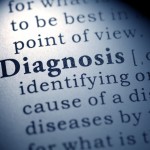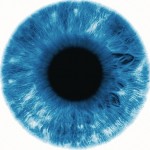
For his ninth Mental Elf blog, Mark Smith reports on a Cochrane systematic review of the effectiveness of short term psychodynamic therapies on common mental health disorders.
[read the full story...]
For his ninth Mental Elf blog, Mark Smith reports on a Cochrane systematic review of the effectiveness of short term psychodynamic therapies on common mental health disorders.
[read the full story...]
Josephine Neale blogs about a systematic review of screening tools for anxiety disorders, which concludes that the GAD-7 and PHQ instruments are appropriate for use in primary care.
[read the full story...]
Patrick Kennedy-Williams summarises a recent meta-analysis, which finds that combined treatment with psychotherapy and antidepressants is more effective than treatment with antidepressants alone.
[read the full story...]
There are many interfaces in mental health services, such as the one between physical and mental health. Where there are interfaces, there are inevitably gaps for patients to fall through. Consequently opportunities are missed to treat mental health problems in those with physical health problems. There is mounting evidence for the effectiveness of Collaborative Care (CC) [read the full story…]

In addition to its impact on quality of life, panic disorder can have a number of costly consequences such as lost productivity – particularly if also associated with agoraphobia. Cost-effectiveness is therefore an important consideration in choosing the optimal treatment for panic disorder, which might improve value via the cost side of the equation. A recent [read the full story…]

The link between external influences such as family and neighbourhood experiences and young people’s mental health outcomes has been extensively commented on in the literature. While it is more common for studies to focus on the individual or family level, looking at things from a wider perspective is interesting especially from a public mental health [read the full story…]

The NICE guideline on common mental disorders (PDF) was published back in May 2011, which means that it only included evidence published up until the end of 2010. This is a fast moving field, so NICE have now put out an evidence update, which focuses on new evidence published from Sept 2010 to Oct 2012. This [read the full story…]

Many people struggle with anxiety disorders such as panic disorder, social phobia, and Posttraumatic Stress Disorder (PTSD). Moreover, about 30% of us have an anxiety disorder at some point in our life (Kessler et al 2005) but most people never receive treatment. Self-help interventions may provide a solution when people are unable or unwilling to [read the full story…]

NICE has developed a series of case studies for GPs to help apply the recommendations from the Common mental health disorders guideline to practice. The case studies which are informed by clinical experience, include contributions from GPs, clinical psychologists and psychiatrists to help GPs when considering the range of treatments and approaches that are recommended [read the full story…]

The demand for psychological therapies far outstrips the supply and in this ongoing period of austerity we surely need to produce some cost-effective alternatives. One method that patients can attempt pretty much on their own is self-help provided through books, CDs, DVDs and websites. This new systematic review claims to be the first to bring [read the full story…]